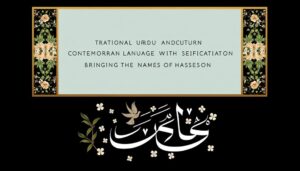Gayatri Name Meaning in English
The name 'Gayatri,' originating from ancient Sanskrit, translates to 'a song or hymn that protects.' It is deeply intertwined with Vedic traditions and the revered Gayatri Mantra from the Rigveda, dedicated to the goddess Gayatri. This name embodies spiritual awakening, purity, and intellectual growth.
Etymologically, it combines 'gāyanta' (to sing) and 'trāi' (to protect), underscoring its profound significance. Culturally, 'Gayatri' invokes a rich heritage and quest for enlightenment in Hindu practices.
It symbolizes a divine chant that uplifts and shields the mind, fostering holistic education and spiritual harmony. There is much more to discover regarding its profound essence and modern relevance.

Key Takeaways
- Gayatri means 'a song or hymn that protects' in English.
- The name Gayatri is derived from ancient Sanskrit.
- Associated with the Gayatri Mantra, dedicated to goddess Gayatri.
- Symbolizes spiritual awakening, purity, and knowledge.
- Represents principles of intellectual growth and spiritual harmony.
Historical Significance
The name 'Gayatri' holds profound historical significance, deeply rooted in ancient Vedic traditions and texts. It is intimately associated with the Gayatri Mantra, one of the oldest and most revered mantras in Hinduism, found in the Rigveda.
This mantra is dedicated to the goddess Gayatri, who embodies the divine illumination of the mind. Historically, the name 'Gayatri' has been venerated as a symbol of spiritual awakening and wisdom. It is often invoked during various Vedic rituals and ceremonies, emphasizing its enduring cultural relevance.
Throughout centuries, the name has been a symbol of the rich spiritual heritage of India, representing an eternal quest for knowledge and enlightenment within the Vedic tradition.
Linguistic Origins
Moving from its historical significance, the name 'Gayatri' derives from the ancient Sanskrit language, where it signifies a meter of 24 syllables. This meter, known as the Gayatri Chhanda, is utilized in various Vedic hymns, embodying a rhythmic pattern that facilitates spiritual recitation.
Etymologically, 'Gayatri' is composed of 'gāyanta' (to sing) and 'trāi' (to protect), hence translating to 'a song or hymn that protects.' The structure of the Gayatri meter allows for a harmonious blend of sound and meaning, deeply ingrained in the fabric of Sanskrit literature.
This linguistic origin not only highlights the phonetic elegance of the name but also underscores its intrinsic link to ancient linguistic traditions and spiritual practices.
Cultural Importance
Within the cultural sphere, the name 'Gayatri' holds profound significance, reverberating through various religious and spiritual practices in Hinduism. Etymologically derived from Sanskrit, 'Gayatri' is a compound of 'gāyantam trāyate iti,' meaning 'that which protects the one who chants it.'
The name is intricately linked to the Gayatri Mantra, a revered hymn in Vedic traditions. This mantra is dedicated to the goddess Gayatri, considered the personification of the universal energy and wisdom. The name also appears in historical texts, poetry, and classical literature, symbolizing purity, enlightenment, and knowledge.
In social contexts, naming a child 'Gayatri' invokes cultural heritage and conveys a commitment to spiritual and intellectual values.
Spiritual Connotations
In the domain of spiritual connotations, 'Gayatri' transcends mere nomenclature to embody a divine principle that harmonizes intellect and spirituality. Etymologically derived from the Sanskrit roots 'Gāyantam' (singing) and 'Tri' (saving), the name signifies a chant that protects and uplifts.
Within Hindu tradition, the Gayatri Mantra is revered as a sacred hymn that invokes the Universal Brahman, fostering divine wisdom and enlightenment.
- Chant of Protection: Gayatri is often associated with a mantra that shields the mind against negativity.
- Symbol of Enlightenment: The name underscores the pursuit of knowledge and spiritual awakening.
- Universal Appeal: The Gayatri Mantra transcends religious boundaries, symbolizing universal prayer and meditation.
This spiritual resonance enriches the name's profound cultural essence.
Modern Relevance
Embracing the myriad dimensions of 'Gayatri,' modern society finds renewed relevance in its principles of intellectual growth and spiritual harmony. The name 'Gayatri,' rooted in Sanskrit, signifies a 'song' or 'hymn' that protects the intellect ('Gāyantam trāyate iti').
In contemporary contexts, this connotation underscores the balance between wisdom and wellbeing. As a cultural symbol, 'Gayatri' transcends its ancient origins to inspire today's efforts in holistic education and mental wellness.
The Gayatri Mantra, integral to this name, continues to be revered for its meditative qualities, fostering mindfulness in an age of digital distractions. Therefore, 'Gayatri' remains a beacon, guiding individuals towards enlightened living and profound inner peace in a rapidly evolving world.
Conclusion
The name 'Gayatri' encapsulates a rich tapestry of historical significance, linguistic origins, cultural importance, and spiritual connotations.
Emerging from ancient Vedic texts, it holds a revered place in Indian tradition and spirituality. Its etymology, rooted in Sanskrit, underscores its profound meaning as a symbol of enlightenment and wisdom.
In contemporary times, the name continues to resonate, reflecting a blend of heritage and modernity. This multifaceted name remains a beacon of cultural and spiritual legacy.






